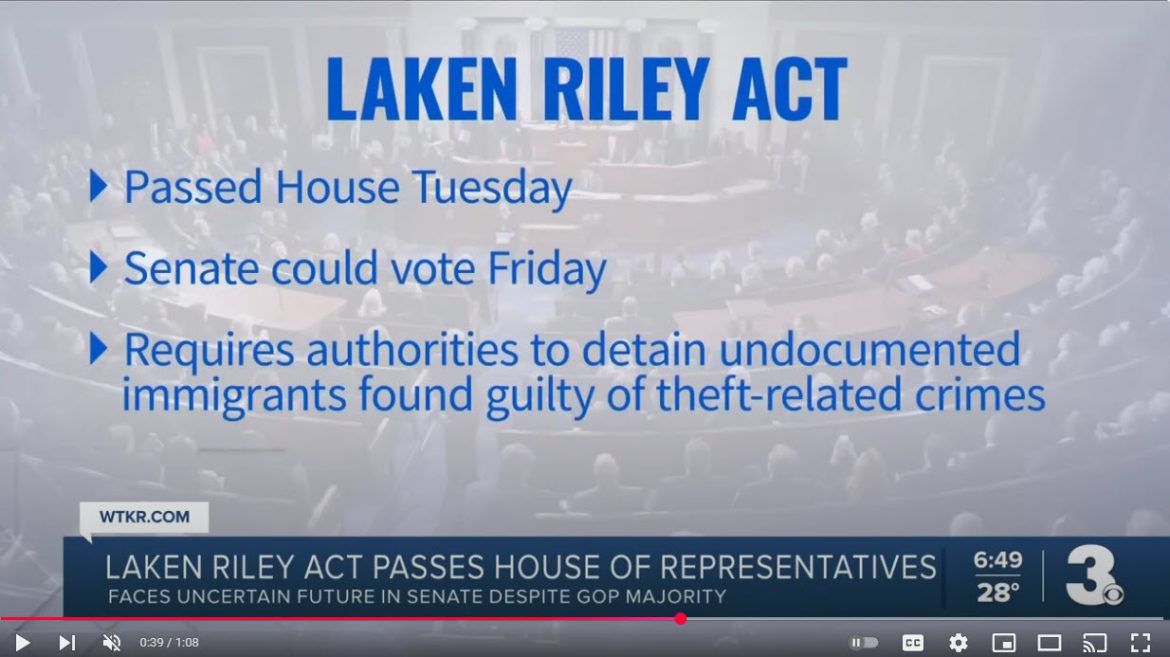The U.S. House of Representatives has passed the Laken Riley Act, a landmark border security measure, as its first legislative action under the newly installed Republican majority. The Act, named after 22-year-old Georgia student Laken Riley, who was tragically killed last year by an immigrant in the country illegally, has become a focal point in ongoing debates about immigration policy and border security.
The House vote underscores the significance Republicans place on immigration reform and border enforcement. The Act introduces stricter measures aimed at curbing illegal border crossings, increasing resources for border patrol, and mandating enhanced surveillance technologies along the U.S.-Mexico border. Proponents of the bill argue that it is necessary to prevent tragedies like Riley’s death and to secure the nation’s borders against future threats.
The timing of the Act’s passage is symbolic, coinciding with the eve of what would have been Riley’s 23rd birthday. Republican lawmakers highlight this connection to emphasize the urgency of their efforts. Georgia Representative Mike Johnson, who spearheaded the legislation, states that the bill honors Riley’s memory by addressing systemic failures in immigration enforcement.
However, the legislation faces significant hurdles as it moves to the Senate, where Democrats hold a slim majority. Senate Democrats have expressed concerns over the bill’s stringent provisions, calling for a more comprehensive approach to immigration reform that balances security with pathways to citizenship for undocumented immigrants already living in the country. Despite these objections, Republicans are pressing for a vote as early as Friday.
The Laken Riley Act has reignited partisan debates over immigration policy, becoming a key issue in the broader political landscape. During the 2024 presidential campaign, the tragedy of Riley’s death served as a rallying point for candidates advocating stricter immigration laws. Opponents, however, caution against using individual cases to justify sweeping legislative changes, arguing that broader socioeconomic and humanitarian considerations must guide policy.
Public reaction to the bill has been deeply polarized. Advocacy groups supporting stricter border control praise the Act as a necessary step toward national security, while immigration rights organizations criticize it as overly punitive and lacking compassion for migrants seeking refuge.
The Biden administration has yet to comment on the Act, but political analysts speculate that it could become a significant point of contention between the White House and Congress. With the Senate vote looming, the Laken Riley Act is poised to test bipartisan cooperation on one of the most contentious issues in American politics.



